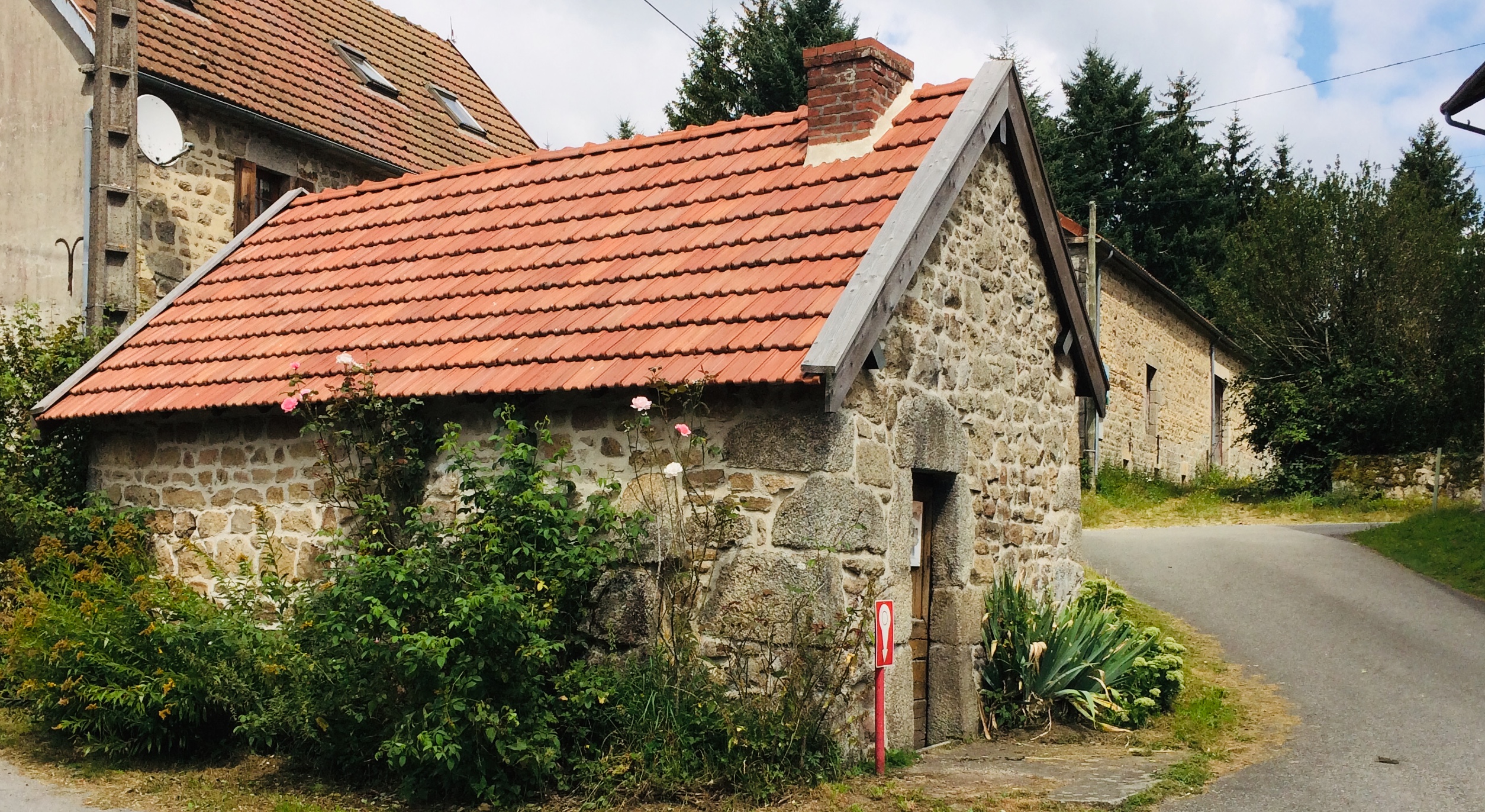 Philippe Barbe
Philippe Barbe

|
The ovenby Philippe Barbe
25 Aug 2021
|
I own a third of an oven.
It is not in my kitchen or in a business of which I would own a third.
The oven is a building sitting in the middle of a tiny village, shared by three families.
Years ago, I remember the last bread made in the oven, along with an apple tart. The tart was wrapped in paper for transport. Actual paper was scarce so newspaper did the trick, probably reprinting news in the bottom of the tart, to be digested against all medical advice.
I don’t think people knew at the time that would be the last time the oven would be lit. The neighbor, Roger, baking his bread, was coming in and out of the small building, sweaty, baking tools in hand, his face darkened by the soot, breath shortened by the smoke. Earlier he had gathered the wood, disposed the logs according to some empirical knowledge that had been developed for this specific oven, lit the fire, waited for perhaps an hour, adding wood as needed, until the oven was at the right temperature.
With a wheat head as thermostat, he waved it in the baking chamber gauging the temperature and knowing how scorched the head had to be for the temperature to be right for baking.
For years the building stood there, its purpose lost to the combustion engine. The baker from the nearest little town toured the village at least twice a week his horn attracting the villagers, saving them hours of bread kneading, oven warming, baking, and the expense of the wood.
Maybe this was the first sign of the off-shoring that we would see in the next 40 years.
A family still made some of their own bread, in the wood stove they bought. Then in their electric oven.
As cars became ubiquitous, the baker came only once a week. Villagers drove 7 miles on a sinuous road to the nearest bakery to get their bread.
The villagers had made their bread with the wheat they grew on their farms. Their purchased bread is made with wheat from distant farms. Does it even come from this continent?
Not being used, the oven slowly fell into disrepair. The roof started to leak. The mortar between the stones started to crumble.
The next generation felt the need to preserve it, by a sense of duty to their parents, grand parents and ancestors who had used it. One of the family paid for the materials, the two others, masons and roofers by training, donated their labors.
The oven was repaired, a beautiful little building marking a bygone era of communal living.
Against the backdrop of this idyllic portrait of peaceful life in a rural place, we forgot the animosity between these families, once fighting over land boundaries, planting rules (not planting of a tree within 5 meters of an adjacent field), missing chickens, missing pine plants…
Human inertia and a poor summer precluded a proper inauguration of the rejuvenated oven.
It stood there for maybe another 15 years, undecided marker of a past that did not want to be forgotten but did not have much future either, uncertain about its destiny, what we would do about it, envisioning more years of neglect that would sign its final death.
The next generation came, which by then had benefited from globalization, had traveled on many continents, spoke multiple languages but not the local dialect. The generation that will inherit the global warming that we created by burning fossil fuel and feel the effect of deforestation.
Like all generations, bearing its contradictions, after several thousand miles of flying, hundreds of miles of driving, knowing all too well how much CO2 is released by burning wood, that new generation longed to use the oven.
So the youngest went to see Roger, then in his 90s, and asked how to use the oven.
There is a knowledge associated, not only with the tools, but also about how to set the fire. Where to place the bread is a knowledge that was acquired by practice. It is easy to skim over that knowledge and consider it as no more than that acquired by reading the manual of a modern oven. But how many generations did it take to come up with this oven? How many breads must have been poorly baked and how many attempts must have been made before someone figured out how to measure temperature with a wheat head?
The lost knowledge got passed along. Old tools with rotten handles were repaired. The fire was lit again, giving the oven another day to fit its purpose.
Each family used to bake once a week, separately. The most recent lighting of the oven brought all of them together. With the passing of generations and the arbitration of the global positioning system, animosity about field boundaries vanished. More wires made less chicken missing. And increase of living standard made people stop fighting over a single pine plant. Everyone remembers about the old days, the now penultimate day the oven was lit, in a different era.
The bread starter used to be passed from one family to the next, rotating between the three families over a period of a week. There is a sense of harmony and care, if not grace, to think of the starter being passed like this from one family to the next. The convenience and abundance of modern life makes us to forget that this was out of necessity.
With the painful process of lighting the oven, with the expensive amount of wood needed to bake, families made their bread once a week. With no refrigerators, the starter could not be preserved for a week. Passing it along may have been the only way to keep it alive at no extra cost, particularly in the summer. There is nothing altruistic and nothing idyllic in this sharing of the starter. It came out of necessity for people linked by their destiny in this place.
As we told acquaintances in nearby villages about the recent lighting of the oven, interest peaked. Everyone wants to be invited next time we use it.
Somehow people are longing for the sense of history, for the oral tradition of the know-how to be passed along, for the technical knowledge of how to use that building to be transmitted to a new generation. Those who have been everywhere and are from nowhere want to attach themselves to some somewhere, feel the sense of belonging.
The memories have done their work, filtering out the bad events, giving us a sense of optimism to carry on our lives. We long for this era where people had the time to bake in the oven, their lives intimately connected to nature and the seasons. We forget the misery of the wars, of infants dying, of the pains that could not be cured, and the poor years where small harvests did not bring enough to the tables.
The oven acquired a new purpose, to remind us of a time which is gone, a yardstick planted in the past from which we measure the losses and the gains due to progress.
It is also a way for us to remember those who are gone, see under the wrinkles of the oldest generation the memory of its youth, feel the passing of time as a prelude to our own mortality. Time has transformed what was a chore into a joy, a weekly routine into a wonderful summer memory, a duty to survive into a duty to reflect on our collective subjection to time.